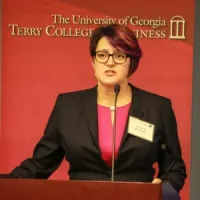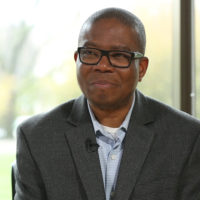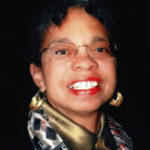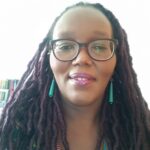Executive Board Officers
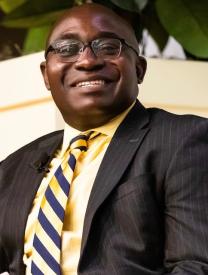
Wale Adebanwi
President
Term: 2024-26
Wale Adebanwi, a Guggenheim fellow, is an anthropologist and political scientist. He is a Presidential Penn Compact Professor of Africana Studies and the Director of the Center for Africana Studies, University of Pennsylvania, Philadelphia. Before moving to Penn, he was the Rhodes Professor of Race Relations and the Director of the African Studies Center at Oxford University, United Kingdom. His research, focusing on Nigeria and South Africa, broadly examines the process of the social mobilization of power and interest in Africa. He is the author of four monographs, including Yoruba Elites and Ethnic Politics in Nigeria: Obafemi Awolowo and Corporate Agency (Cambridge, 2014) and How to Become a Big Man in Africa: Subalternity, Elites, and Ethnic Politics in Contemporary Nigeria (Indiana, 2024), and (co)editor of several volumes. He is currently completing a manuscript on racialization and the politics of street renaming in post-apartheid South Africa.
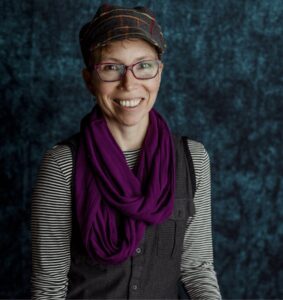
KD Thompson
Secretary
Term: 2024-2027
K.D. Thompson is Evjue-Bascom Professor in the Humanities, Director of the Doctoral Program in Second Language Acquisition, and Professor of Religious Studies at the University of Wisconsin-Madison, with additional affiliations in African Cultural Studies, Anthropology, Gender & Women’s Studies, and Language Sciences. Their research uses critical ethnography and critical discourse analysis to examine African and Muslim discourse, with specific projects in Zimbabwe, Tanzania, North America, and online.

Christine Chalifoux
Treasurer
Term: 2024-27
Jennie E. Burnet
Board Member-at-Large
Term: 2024-25
Jennie E. Burnet is an associate professor of anthropology and director of the Institute for Women’s, Gender, and Sexuality Studies at Georgia State University in Atlanta, United States of America. She is the award-winning author of Genocide Lives in Us: Women, Memory, and Silence in Rwanda. Her forthcoming book, To Save Heaven and Earth: Rescue during the Rwandan Genocide, examines how and why some Rwandans risked their lives to save Tutsi from the carnage. Her research has appeared in Politics & Gender, African Affairs, African Studies Review, and Women’s Studies International Forum.
Omolade Adunbi
Program Chair
Omolade Adunbi is a political and environmental anthropologist and Professor of Afroamerican and African Studies, Professor of Law (courtesy) and the Director of the African Studies Center. He is a Faculty Associate, Program in the Environment (Pite), the Donia Human Rights Center (DHRC) and the Energy Institute at the University of Michigan, Ann Arbor. His areas of research explore issues related to governance, infrastructures of extraction, environmental politics and rights, power, violence, culture, transnational institutions, multinational corporations and the postcolonial state. In 2016, he received The Class of 1923 Teaching Award at the University of Michigan. His book, Oil Wealth and Insurgency in Nigeria (Indiana University Press, 2015) won the 2017 The Royal Anthropological Institute of Great Britain and Ireland’s Amaury Talbot Book Award for the best book in Anthropology of Africa. His latest book, Enclaves of Exception: Special Economic Zones and Extractive Practices in Nigeria, (Indiana University Press, 2022) interrogates the idea of Free Trade Zones and its interrelatedness to oil refining practices, infrastructure and China’s engagement with Africa. His new project is at the intersection of social media, climate change and the politics of the environment
![Lu Headshot[60]](https://afaa.americananthro.org/wp-content/uploads/2023/03/Lu-Headshot60-pdf-300x287.jpg)
Vivian Chenxue Lu
Program Chair
Vivian Chenxue Lu is Assistant Professor of Anthropology and faculty affiliate in African and African American Studies at Fordham University. Her work examines the growing migratory and commercial linkages between West Africa, specifically Nigeria, and the Global South.
Adeola Oni-Orisan
Program Chair
Temporarily appointed, pending confirmation by vote
Committee Chairs
Bennetta Jules-Rosette
Student Paper Awards Committee Co-Chair
Bennetta Jules-Rosette is a Distinguished Professor of Sociology and the Director of the African and African-American Studies Research Center at the University of California, San Diego. She is the author of nine books and over 120 scholarly articles on African, African-American, and diaspora studies. Her areas of interest include ethnographic and semiotic studies of art, religion, and technology. Her books include African Apostles: Ritual and Conversion in the Church of John Maranke (1975), A Paradigm for Looking: Cross-Cultural Research with Visual Media (1977, co-authored with Beryl L. Bellman), The Messages of Tourist Art: An African Semiotic System (1984), Terminal Signs: Computers and Social Change in Africa (1990), Black Paris: The African Writers’ Landscape (1998), Josephine Baker in Art and Life: The Icon and the Image (2007), and African Art Reframed: Reflections and Dialogues on Museum Culture (2020, co-authored with J.R. Osborn). Professor Jules-Rosette is a past President of the Association for Africanist Anthropology (2005-2009), a past President of the Semiotic Society of America (1988-1989), and a former Board Member of the Smithsonian National Museum of African Art (2005-2009).
Apostolos Andrikopoulos
Student Paper Awards Committee Co-Chair
Apostolos Andrikopoulos is a Lecturer (Assistant Professor) in Social Anthropology at University College London (UCL). His ethnographic research focuses on migration from Africa to Europe and its intersections with kinship, gender, and sexuality. His first book, Argonauts of West Africa: Unauthorized Migration and Kinship Dynamics in a Changing Europe (University of Chicago Press), received the Elliott P. Skinner Award for Africanist Anthropology and an honorable mention for the William A. Douglass Prize in Europeanist Anthropology. His PhD dissertation (University of Amsterdam, 2017) was awarded the IMISCOE Maria Ioannis Baganha Dissertation Award for the best dissertation in migration studies. He is also a recipient of the Bennetta Jules-Rosette Graduate Essay Award (2015)
James H. Smith
Elliot P. Skinner Book Prize Committee
James H. Smith is a professor of Socio-Cultural Anthropology and, since 2021, Chair of the Department of Anthropology at the University of California (Davis). He is the author of The Eyes of the World: Mining the Digital Age in the Eastern Congo (University of Chicago Press), which won the Elliott P. Skinner Prize for Africanist Anthropology (2022), the Association for Political Anthropology “Critical Anthropology” Book Prize (2022) and the Society for the Anthropology of Work Book Prize (2023). He is also the author of Bewitching Development: Witchcraft and the Reinvention of Development in Neoliberal Kenya (University of Chicago Press), which explores vernacular understandings and critiques of “development” and their relationship to local theories of “witchcraft.” He is co-author of the collaborative memoir and ethnography Email from Ngeti (University of California Press) and co-editor of Displacing the State: Religion and Conflict in Neoliberal Africa (University of Notre Dame Press). Smith is the recipient of numerous grants and fellowships and has published articles in peer reviewed journals, including American Ethnologist, Ethnography, Comparative Studies in Society and History, and the Journal of Religion in Africa. His research concerns many aspects of everyday life in postcolonial Africa, with specific topics including “development” and vernacular development and peace-building narratives and practices in Africa; artisanal mining and digital minerals resource extraction, especially in Eastern Congo; “blood minerals” auditing schemes; human-wildlife conflicts and climate change in Africa, especially in Kenya and Eastern Congo; and Temporal Politics in Colonial and Postcolonial Africa. He received his PhD in Anthropology from the University of Chicago in 2002.
Communications Fellow
Rachel Maina
Communications Fellow
Ms. Rachel Maina is a PhD student in the Department of African Cultural Studies at the University of Wisconsin-Madison with a minor in Anthropology. Her research focuses on language and identity, and she is interested in gender, sexuality, Islam, African and global cultures, and linguistic and cultural anthropology. Rachel holds a B.Ed. (Arts), MA in Swahili Studies from Kenyatta University, Nairobi, Kenya, and an MA in African Languages and Literature from the University of Wisconsin-Madison.

